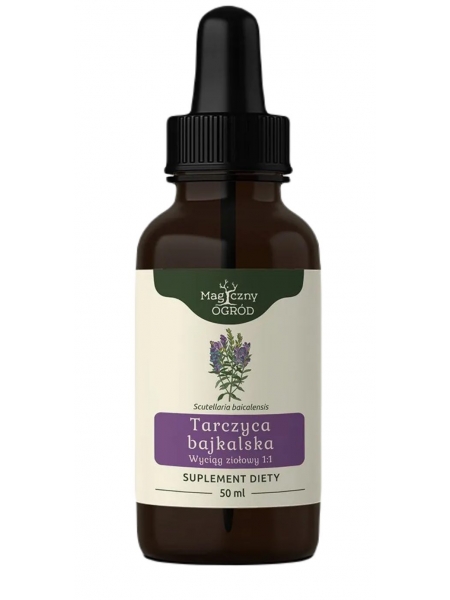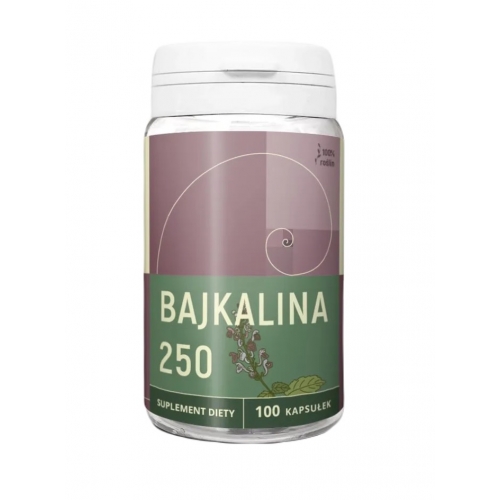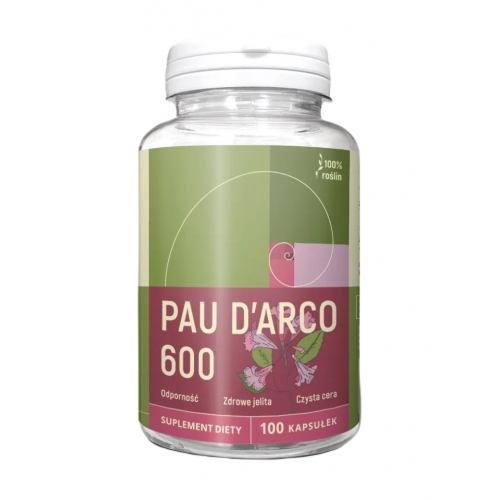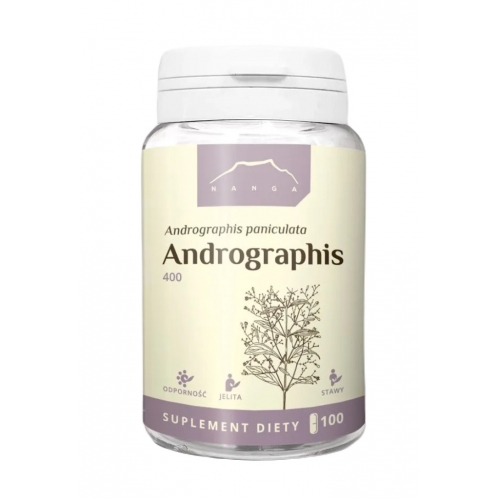- Out-of-Stock
Nanga Chinese skullcap root - Scutellaria baicalensis tincture 1:1 50ml
Baikal Skullcap (Scutellaria baicalensis) is a plant that, due to its valuable properties, was used in traditional medicine in the Far East hundreds of years ago. The herb contains over 40 flavonoids. The product is in the form of a convenient tincture. This is a dietary supplement.
Comparative price: SEK 2780/l
What is Baikal Skullcap?
Baikal Skullcap is a plant that comes from East Asia and occupies an important place in traditional Chinese medicine. The herb belongs to so-called adaptogens, i.e. plants that strengthen resistance to stress and support the body's function on many levels. The Chinese call this herb Huang-Qin and count the plant among the 50 basic herbs. Baicalin is one of the most important active substances in Baikal Skullcap. In addition to baicalin, its root also contains baicalein, wogonin and wogonoside - equally important compounds, and each with a slightly different effect. Research on Baikal Skullcap focuses on either the root extract or extracts containing one of the four compounds above.
This plant is also appreciated for its decorative qualities. It bears beautiful, showy, blue-violet flowers that grow one above the other in long, erect inflorescences.
Chinese skullcap occurrence
The herb belongs to perennial plants of the Lamiaceae family and is not a tall plant, as it usually reaches about 30-60 cm in height. It is found in eastern Siberia, Mongolia, northern China and Japan. Its interesting properties have been known for centuries thanks to traditional Chinese medicine. The most characteristic part of this plant is the flowers, which are beautiful dark sapphires or blue-violet and have a light spot in the middle.
What is Chinese skullcap good for?
Baicalin's action based on research:
1. Baicalin promotes the body's correct anti-inflammatory response. This property has so far been studied extensively (over 170 experiments) with various models of inflammation - e.g. joints, intestines, skin, kidneys or liver. In each of the studies, a positive effect of baicalin on inflammation was observed [1].
2. Baicalin has a neuroprotective effect, stimulates neurogenesis and strengthens memory. Several studies have shown that baicalin can inhibit brain tissue damage and reduce the death of neurons in the brain under the influence of various toxic factors. It prevents loss of cognitive abilities and also improves memory, which has been proven by animal experiments [2]. In addition, baicalin can stimulate the regeneration of brain structures and promote their reconstruction [3], and even promote neurogenesis, i.e. the formation of new cells and nerve connections [4].
3.Baicalin can improve mood, as shown by experiments on animal models of depression. In such studies, depressive behavior in animals and changes in their brains are observed. It was found that baicalin repeatedly reduced the animals' depressive behavior and also inhibited apoptosis (death) of neurons in the hippocampus, reduced oxidative stress in brain structures, inhibited the activity of MAO-A and MAO-B enzymes that break down serotonin, and reduced the level of corticosterone (animal stress hormone) in the blood [5, 6, 7].
4. Baicalin supports the function of joints affected by inflammation. This property has been tested in an animal study and in a human study. In both cases, it was observed that oral baicalin supplementation had a positive effect on the condition of the joints. Their swelling and stiffness decreased and range of motion increased [8, 9].
Chinese skullcap - contraindications
Oral use of the herb is safe, but in some cases may cause excessive drowsiness. Some people may also experience a slight increase in body temperature.
Caution should be exercised when taking the plant with drugs that impair liver function. In addition, it is not recommended for people with blood clotting problems and diabetes, and people with various hormone-dependent diseases should also be careful because the thyroid gland can affect the level of estrogen in the blood.
Unfortunately, there is insufficient data on the safety of Chinese skullcap herb use in pregnant women and nursing mothers. For this reason, these women should avoid this herb.
With us, you will also find Chinese skullcap in the form of capsules and dried root.
References:
1. https://pubmed.ncbi.nlm.nih.gov/?term=baicalin+inflammation
2. Neuroprotective and Cognitive Enhancement Potentials of Baicalin: A Review:https://www.ncbi.nlm.nih.gov/pmc/articles/PMC6025220/
3. Neuronal differentiation of human iPS cells induced by baicalin via regulation of bHLH gene expression: https://pubmed.ncbi.nlm.nih.gov/26277393/
4. Baicalin influences the dendritic morphology of newborn neurons in the hippocampus of chronically stressed rats: https://www.ncbi.nlm.nih.gov/pmc/articles/PMC4146053/
5.Baicalin Reverses Depressive-Like Behaviours and Regulates Apoptotic Signalling Induced by Olfactory Bulbectomy: https://pubmed.ncbi.nlm.nih.gov/26681067/
6. Baicalin decreases SGK1 expression in the hippocampus and reverses depressive-like behaviors induced by corticosterone: https://pubmed.ncbi.nlm.nih.gov/26480816/
7. Antidepressant Effect of Baicalin Extracted from the Root of Scutellaria baicalensis. in Mice and Rats: https://www.tandfonline.com/doi/pdf/10.1080/13880200600878684
8. Baicalin Inhibits IL-17-Mediated Joint Inflammation in Murine Adjuvant-Induced Arthritis: https://www.ncbi.nlm.nih.gov/pmc/articles/PMC3694363/
9. Baicalin reduces blood lipids and inflammation in patients with coronary artery disease and rheumatoid arthritis: a randomized, double-blind, placebo-controlled trial: https://www.ncbi.nlm.nih.gov/pmc/articles/PMC6015450/
Ingredients: Tinctura Scutellariae 1:1
Chinese skullcap root (Scutellaria baicalensis) certified ethyl alcohol, distilled water, vegetable glycerin.
Ethanol content in the tincture: 35 – 45%
Use part of plant in tincture: root
Dosage: 1 portion of the pipette, two to three times a day. Mix with a small amount of water.
1 scoop (pipette) corresponds to approx. 0.5 ml.
Contents of the daily portion:
1.5 ml extract of Chinese skullcap root (Scutellaria baicalensis)
Do not exceed the recommended daily dose.
Chinese skullcap root tincture contains approx. 150 mg of alcohol per portion, which corresponds to 3.75 ml of beer or 1.6 ml of wine.
Storage: store in a closed container at room temperature, out of the reach of small children. Protect from light and moisture. Sediment is a natural phenomenon.
Country of origin: Poland
ATTENTION!
Caution should be exercised when taking the plant with drugs that impair liver function. In addition, it is not recommended for people with blood clotting problems and diabetes, and people with various hormone-dependent diseases should also be careful because the thyroid gland can affect the level of estrogen in the blood.
Dietary supplements are not intended for medical use and should not be used as an alternative to a varied diet. Do not use in case of allergic reactions. The product should not be used by children, pregnant and nursing mothers, hypersensitive people and people who are addicted to alcohol.











